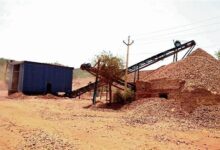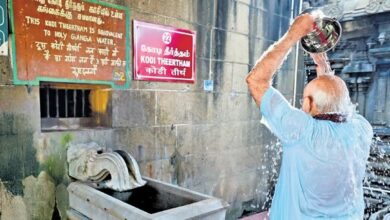“It’s better to stay silent if work is being done without speaking,” said Lakhimpur BJP MP Pradan Baruah
The BJP leader Pradan Baruah bravely faces the label of “silent MP” as he runs for a third term in a row from Lakhimpur, Assam, saying that his constituency is developing quickly and that “if by not even speaking in Parliament, so much is happening, it is better not to speak.”

Baruah said that he has made sure that fundamental concerns like connectivity and flood management on the north bank of Brahmaputra, which borders Arunachal Pradesh, are taken care of even without resorting to his “trump card”—speaking in the House.
“It is only preferable if tasks are completed silently. Then I should put my trump card away. We are receiving everything without even having to ask. What could be more ideal than that? In an interview with PTI, Baruah said this.
In February of this year, the non-profit organization PRS Legislative Research released statistics indicating that Baruah was one of nine members of the departing Lok Sabha who did not take part in any debate or discussion throughout the House’s entire tenure.
As a national party member, Baruah said that speakers are chosen based on themes.
“The Narendra Modi administration is operating with a sense of patriotism. Not that I don’t bring up our difficulties; there are other venues where I may express them,” he said.
He gave the example of how 30% of Assamese potential recipients of the Pradhan Mantri Awas Yojana (PMAY) were excluded, leading to the launch of initiatives like “Mera Mati, Mera Desh” and “Vikshit Bharat Sankalp Yatra.”
“We told Modi ji that these efforts were a success. We now have two crore more PMAY homes. Bihar and Assam gained the most. All those who qualify will have their homes by the next year,” he said.
“I will surely talk if the party leadership wants me to at some point in the future.
However, it is preferable to remain silent even if this is the case, the MP continued.
One of Lakhimpur’s major issues, according to Baruah, is that the yearly floods are under control.
Only 20% of the flood control work has to be done; 80% of it has already been completed. People’s reluctance to part with their property for the purpose of constructing embankments or river water channels is one of the many causes of it, the speaker said.
“Some claim they would sooner learn to live with flooding than give up their property. We’re attempting to persuade them that giving up some land would benefit them more,” he said.
The Jiadhal and Gai are two significant rivers where flood control measures are being implemented, according to Baruah. She also said that although the process of implementing these measures required a lot of study, it took time, and the work is now nearing completion.
Regarding worries about the potential detrimental effects of the NHPC’s Lower Subansiri Hydel Power Project in Arunachal Pradesh, Baruah, it was said that they were based on “rumors spread by a section of people” in downstream districts.
“We visited every community, telling the locals that the dam is being constructed using the most advanced technology available. They now understand us,” he said.
He said, “The government and the NHPC are currently working to protect downstream areas beyond 30 km, which was previously confined to 10 km only.”
The Member of Parliament said that while considerable work has been done, more has to be assured to ensure connection, which is another key concern for the area, particularly with regard to train communication.
According to him, concerns over railway connection were brought up before the Railway Board, and once the station at Pasighat, which borders Arunachal Pradesh, is finished by the end of the next year, trains linking Lakhimpur with major cities would begin to operate.
By November, he said, the electrification of the railway tracks here would also be finished.
“We want everyone to benefit 100% from central government programs. We put a lot of effort into spreading the word about these programmes, particularly via gram sabhas. Saturation of all central government initiatives is our goal, he said.
Baruah, who joined the saffron party after serving as a Congress MLA from Dhemaji, said that this Lok Sabha election would be “for development, for Modi”.
He said that the public had rejected the opposition parties because they lacked a large following and effective leaders.
“At this time, getting Congress cadres is challenging. A leadership issue is causing the few members of the party to leave,” he said.
Uday Shankar Hazarika, a member of the grand old party, is running against him.
According to him, “good work has been done in the last 10 years,” with bank links being established for all societal segments, enabling people to support their families and themselves financially.
According to the MP, the previous ten years have seen significant advancements in social improvement, socioeconomic growth, and infrastructure development.
Nine candidates are running from the Lakhimpur seat, which has its first round of voting on April 19.







